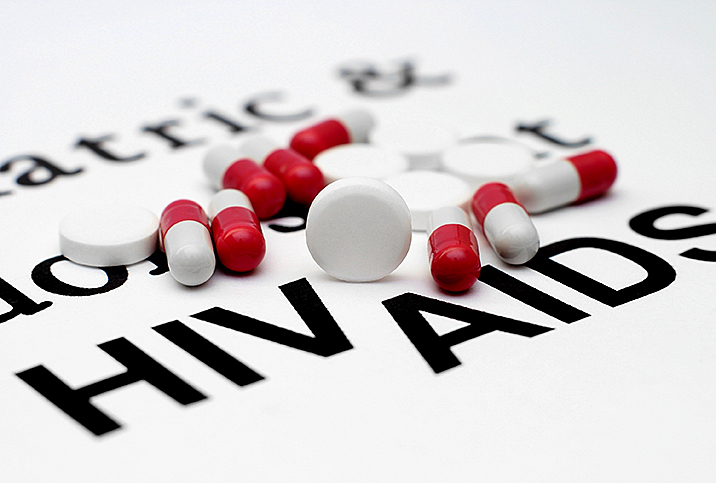A Look at Whether HIV Impacts Male Fertility

One of the more complex aspects of human health is reproduction. The ability to have a child is a natural process, but one fraught with potential complications. Introduce the presence of a chronic illness, such as human immunodeficiency virus (HIV), and the circumstances become more difficult to manage.
People newly diagnosed with HIV or living with the virus long-term may have questions about reproductive viability, especially because many people are still unaware of the realities related to undetectable HIV management.
Fortunately, modern science is steadily tackling conception problems that face couples of all kinds. Medical practices surrounding HIV care today make it possible for HIV-positive people to have children safely without the risk of HIV transmission or other complications.
"It's a whole different era because treatments are better and people live a normal, healthy life with HIV," said Gad Lavy, M.D., a reproductive endocrinologist and the medical director and founder of New England Fertility, with offices in New York and Connecticut.
Lavy has many years of experience helping a wide range of people through the reproductive process. He said a significant portion of his clients are same-sex couples, and it's not uncommon for these couples to include at least one person living with HIV.
Working with these individuals is no different from working with anyone else seeking reproductive assistance, he said. Medications are just one aspect of HIV care, and they represent the progress made in treatment and maintaining reproductive viability for HIV-positive people.
"The medication now is so much more effective and so much easier to take, has fewer side effects and doesn't really affect their sperm and sperm production," Lavy said.
Management remains essential
Male-identifying people make up a substantial portion of the HIV-positive population, and Lavy noted the need for more research, data and public discussion focused on the effects of an HIV diagnosis on women. But it is safe to say HIV-undetectable women can conceive and give birth through various means, including assisted reproductive technologies, without legitimate concern for how their HIV status might affect the process. "HIV-undetectable" refers to people whose viral load can't be detected by standard tests. They are not cured of the virus, but they can't transmit HIV to a partner, and a pregnant woman can't transmit HIV to her baby.
Management of HIV remains important in every aspect. When the body is damaged, either through neglected treatment or an undiagnosed condition, the ability to have children is always at risk.
The direct effect is debatable
HIV-positive people need to consider some statistical and circumstantial factors related to fertility, HIV and general health.
For example, does the presence of the virus affect a man's likelihood of conceiving children?
"Not directly, but, of course, once your body starts to sort of break down, one of the first things to go is your reproductive abilities," Lavy said. "But the disease itself doesn't affect the testicle or the sperm."
In other words, according to Lavy, other health consequences of having untreated or long-term HIV may have a more direct impact on the testicles and/or sperm production and motility.
"Although the medications that they're on keep their viral load kind of low, they're more prone to develop infection compared to the general population," said Wael Almajed, M.D., a urologist and sexual medicine and men's health fellow at Tulane University in New Orleans. "These infections can range from urinary tract infection to orchitis or epididymitis or prostatitis. And these infections, especially the genital infections, can have a direct impact on the sperm and the sperm production."
Infections have a wide range of potentially far-reaching consequences, some of which may be less obvious than others to the average patient.
"These infections, especially when it involves the prostate or the epididymis, can cause obstruction in the tract, like with the ongoing inflammation, and they can suffer from that, as well," Almajed said.
He added that lower sperm concentration and lower motility rates have been observed in HIV-positive men, and a 2019 study indicates this occurrence could have a direct relationship to HIV.
Reproductive health and general health can't be separated
"If your general health deteriorates for any reason, including HIV, that's immediately reflected in sperm production," Lavy said. "We don't really see people like we used to with really advanced HIV who are very sick, [and it's] affecting basically all of their systems."
HIV is well-managed by many patients these days, so those seeking reproductive assistance often have more questions about that process than about how HIV might affect sperm or female reproductive viability. While there might be some slight variations in how Lavy works with HIV-positive individuals based on their gender, those differences don't really extend beyond what would be routine considerations for people with different reproductive biological makeups in general.
Doctors are confident in their ability to safely navigate the reproductive process for people living with HIV and their partners.
"We still approach them the same way we approach somebody who's not [HIV-positive], it's just trying to figure out the cause [of conception issues] and come up with a plan of treatment and then trying to figure out what we can do to minimize the risk of transmission with the treatment," Lavy said.
There's a scientific and ethical necessity involved in considering all of a person's health parameters when examining any health issue. But it does seem that within the context of a modern health setting and optimal health management conditions, living with HIV is a relatively benign aspect of reproductive issues that might come up among couples today.


















